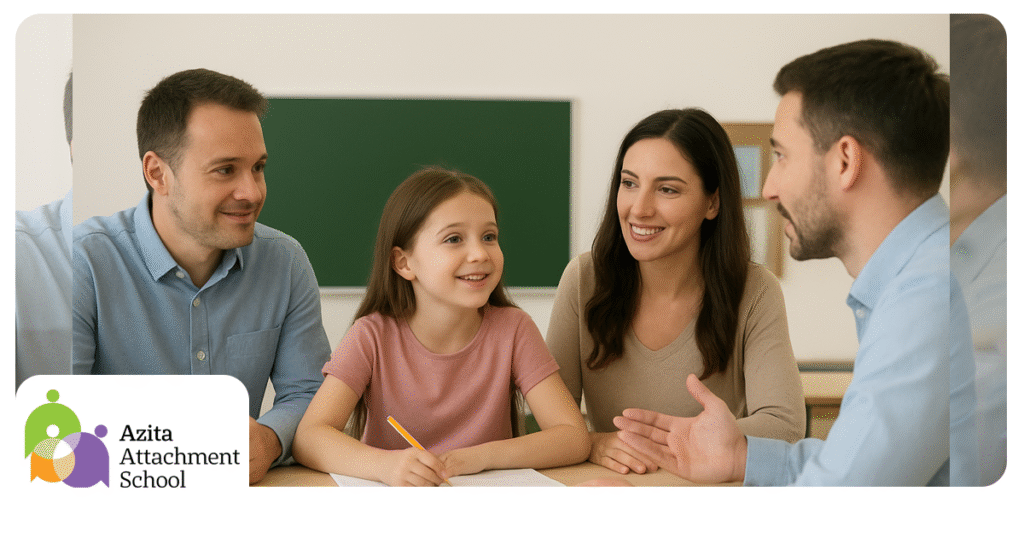A child’s bond with teachers and peers’ shapes academic success and mental health. Discover research, case studies, and practical strategies for parents to strengthen these relationships.
Introduction
School is not just a place for academics—it’s a social and emotional training ground. The quality of a child’s relationships with teachers and peers strongly influences confidence, motivation, and overall mental health. Parents play a central role: they can either support these connections or unintentionally hinder them.
Historical Background and Research
- John Bowlby (1969): Attachment theory emphasizes that securely attached children form stronger relationships with teachers and peers.
- Mary Ainsworth (1978): Secure attachment fosters social confidence.
- Pianta (1999): A positive teacher–student relationship predicts long-term academic success.
- OECD (2018): Peer relationships are among the strongest predictors of school satisfaction and well-being.
Global Data
- USA (APA, 2021): Students with positive teacher relationships are 3x more likely to have strong academic motivation.
- Europe (EU Kids Online, 2020): 42% of teens reported supportive friendships reduced their anxiety.
- Iran (2018): Research showed parental support in peer relationships reduces bullying.
- OECD (2022): Teacher–student relationships significantly reduce dropout rates.
Case Study
Sina, 12 years old:
Sina was shy and struggled to make friends. His parents initially pressured him: “Why don’t you have friends?” But when they shifted their approach—organizing group games at home and engaging with his teacher—Sina gained confidence. Within months, he formed his first close friendship and felt more connected to school.
How Parents Can Strengthen Teacher Relationships
- Constructive communication with teachers: Approach with support, not blame.
- Model respect: Children adopt their parents’ view of teachers.
- Share important information: Discuss emotional or learning challenges openly.
- Home–school collaboration: Align parental and teacher expectations.
How Parents Can Strengthen Peer Relationships
- Create social opportunities: Playdates, extracurricular activities.
- Teach communication skills: Listening, turn-taking, conflict resolution.
- Model empathy and respect: Parents’ behavior sets the tone.
- Normalize conflict: Teach that disagreements are natural and manageable.
Step-by-Step Interventions
- Conversations with children: Ask about feelings toward teachers and peers.
- Encourage positive interactions: Celebrate small social wins.
- Skill building: Use group games as practice.
- Stay connected with school: Regular communication with teachers.
- Support during struggles: Offer guidance during bullying or loneliness.
Quick Tips for Parents
Ask: “Who did you spend time with today?” instead of only focusing on grades.
Teach children that teachers are human too—relationships are mutual.
Family group games boost social skills.
Encourage respectful “no” as part of healthy boundaries.
Conclusion
Parents can play a transformative role in their child’s school life. By modeling respect, fostering skills, and collaborating with teachers, they help children form secure, positive relationships with both teachers and peers. These bonds strengthen academic success and nurture lifelong social resilience.

